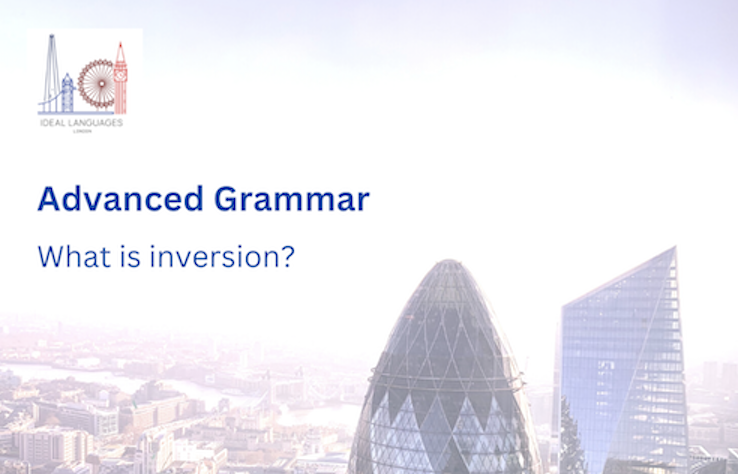If it’s good enough for Winston Churchill, it’s good enough for you!
What’s inversion, I hear you say. Ready for a challenge?
What is it and why should I use it? If you know what this is, tell us on social media before reading! Winston Churchill loved using inversion – see our next blog post for some examples.
I taught a grammar lesson yesterday on negative inversion. What is this, I hear you ask. Well, a student put it perfectly, as follows: “it looks just like a question with something at the start.”
How?
Inversion literally means to put two things in the opposite order. In this case, a subject and an auxiliary verb. As the student quite rightly pointed out, though, this also needs something at the start. That something is an adverbial.
Take for example the following sentence: I have never been to New York. Using inversion, this would be ‘never have I been to New York’. The adverbial, never, has been moved to the start, and the subject (I) and auxiliary verb (have) have swapped places (they have been inverted), making it look a little like a question, as my student pointed out.
Why?
But why do this? Isn’t this just making your sentence more difficult?
Well, the answer is three-fold. You might decide to use inversion for emphasis, or for formality, or for drama. Either way, it sounds great, doesn’t it?!
The example given above was using the verb tense present perfect, which already has an auxiliary verb (have or, depending on the subject, has). So what if the verb tense has no auxiliary verb, such as in this sentence: I rarely drink beer. Now we have to add an auxiliary verb and then invert this with the subject in the same way as above. So this would become ‘rarely do I drink beer’. More emphatic isn’t it? This verb tense is present simple (auxiliary verbs do or does) and for past simple, what auxiliary verb do you think should be used? Tell us in the comments.
Adverbials
Another important thing to add is that the adverbial is a special type of adverbial, called a negative or limiting adverbial. Examples of these are: rarely, seldom, hardly ever, under no circumstances, never, in no way, barely, no sooner etc. This is not a complete list. Therefore, inversion doesn’t work with words such as ‘always, sometimes, often’ etc.
See our next few posts for fantastic real-life examples of inversion.
Why not give it a try? Post your examples in the comments on social media.

